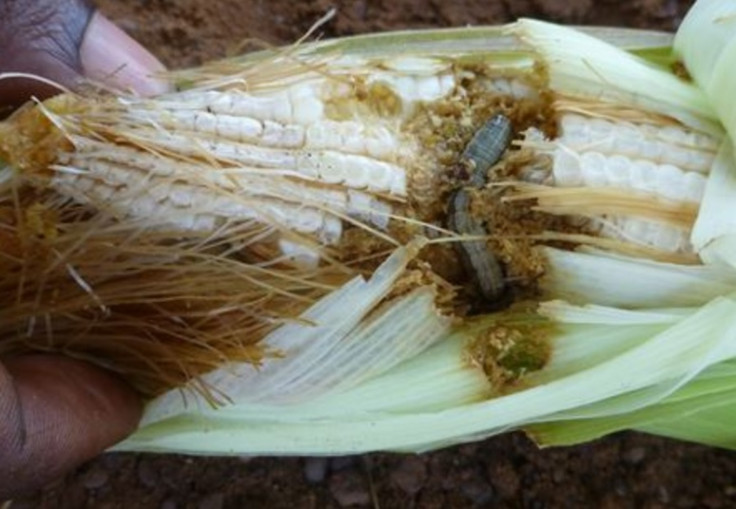Millions are going hungry in southern Africa as armyworms and drought threaten crops
Crop-eating pest has spread to several countries including South Africa, Zimbabwe, Malawi and Zambia.

People in drought-affected countries in southern Africa are seeing their already depleted food crops further reduced due to an invasion of caterpillars known as armyworms. The crop-eating pest has spread to several countries including South Africa, Zimbabwe, Malawi and Zambia.
Thousands of households in these nations are already coping with food scarcity due to lack of rainfalls for two consecutive seasons.
Armyworms, native to North and South America, were first recorded as an invasive species in Africa in early 2016. They are known to devastate harvests, particularly maize and rye, staple foods in many of the impacted nations.
Earlier in February, the UN Food and Agriculture Organisation (FAO) organisation held an emergency meeting over the invasion of armyworms, amid fears more countries could be affected.
Zimbabwe, one of the countries worst impacted by the armyworms, has been battling with lack of food for several years. At least four million people have been impacted, according to the World Food Programme.
"We are deeply concerned about the issue of army worms in Zimbabwe, and the long-term effects it will have on the communities who are still recovering from the devastating impact of the El Nino induced drought," Joseph Kamara, humanitarian and emergency affairs director for the Southern Africa section of global charity World Vision, told IBTimes UK.
IBTimes UK coverage of drought in Malawi
Malawians fear for future as lack of maize threatens survival
Armyworms are difficult to track and eliminate because they eat during the night, while they hide during the day. Governments in Africa have no previous experience of dealing with this type of pest.
"The pest has struck at a pivotal time when the maize crop was almost maturing, essentially ruining the whole yield," Kamara explained.
"Our fear is that if the pest is not put under control it might have a devastating and long term effect on the food security of the communities here, as well as countries like Zambia and Malawi who have also reported the infestation."
Earlier in February, the Centre for Agriculture and Biosciences International warned that could spread even further across the globe, moving from Africa to Asia and the Mediterranean.
"Urgent action will be needed to prevent devastating losses to crops and farmers' livelihoods," chief scientist Matthew Cock warned.
© Copyright IBTimes 2024. All rights reserved.






